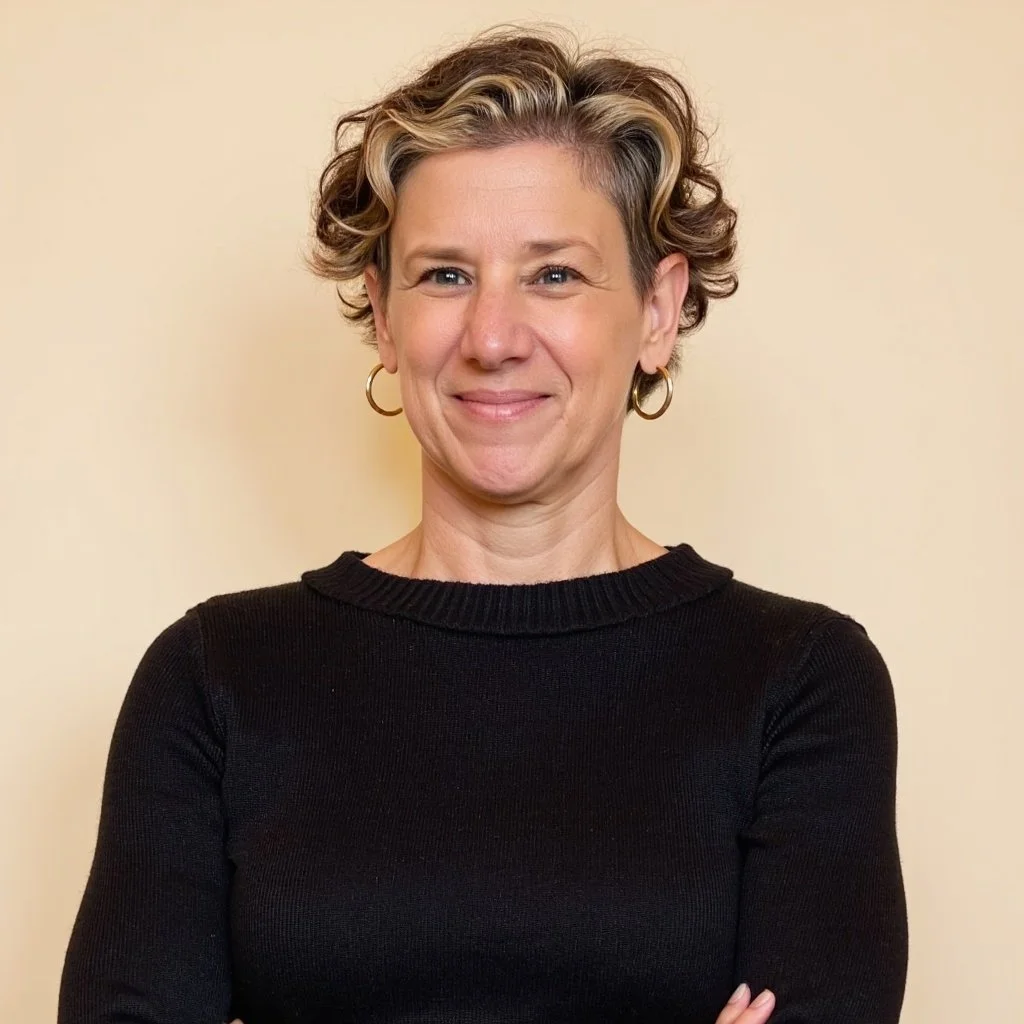Collaborative Leadership
In the spirit of collaborative, we have a shared leadership structure comprised of co-directors and a robust, engaged steering committee and advocacy council representing our member organizations. In addition, action teams focus on specialized areas of our work and function - membership and DEI, knowledge mobilization, and Fair Trade Learning and toolkit development - to advance the work of our members.
Co-Directors
-

Samantha Brandauer
Samantha is a career-long international educator working toward an international education model that is a force for positive and equitable change across all the people and communities it impacts. She has worked in various international education settings including non-profit, study-abroad provider and both large, public and small, private higher education institutions. Her focus as a practitioner/scholar is to build inclusive, equitable and sustainable communities through international education. Connected to this focus, her research interests lie in the study abroad gender gap, intervention in student learning abroad, building equitable partnerships, and the development and assessment of intercultural competencies that examine position and power. She has been an invited facilitator, panelist and presenter for organizations and institutions such as NAFSA, the Forum on Education Abroad, the Institute of International Education and AIEA. Samantha holds an M.A. in International Communication from the School of International Service at American University. Currently, she is Associate Provost and Executive Director of the Center for Global Study and Engagement at Dickinson College. She currently serves on the Forum on Education Abroad and the Pennsylvania Council for International Education (PACIE) boards. She is also a co-editor and contributor to the Collaborative's Interdependence: Global Solidarity and Local Action Toolkit an online, open access teaching resource.
-

Sarah Stanlick
Sarah Stanlick, Ph.D., is an Assistant Professor in the Department of Integrative and Global Studies and the Director of the Great Problems Seminar at Worcester Polytechnic Institute. She was the founding director of Lehigh University’s Center for Community Engagement and faculty member in Sociology and Anthropology. She previously taught at Centenary College of New Jersey and was a researcher at Harvard’s Kennedy School, assisting the US Ambassador to the United Nations, Samantha Power. Professor Stanlick directs WPI’s signature first-year experience program, the Great Problems Seminar. She is also responsible for the delivery and support of global project-based learning through the Global Projects Program, and teaches social science research methods for students of all backgrounds and majors in preparation for the interactive qualifying project (IQP), a 7-week project with external sponsors. Her commitment to transformative and inclusive learning that engages students as active agents includes her regular participation in faculty learning communities at WPI and collaborative work to advance the integration of open educational resources and open pedagogical practices across the WPI curriculum.
Staff
-

Mike Bishop
Managing Director
Mike Bishop, Ph.D. is an educator who has facilitated interactive workshops with a focus on human development, human rights, and human dignity for 25 years. Originally from a small town in western NY he spent seven years as a youth counselor leading adventure-based activities on Cape Cod and the Missouri Ozarks. He then worked in higher education for more than 20 years leading interactive workshops, creating campus-community partnerships, facilitating dialogues across difference, and designing social action leadership programs. Mike works with stories to nurture anti-racist allies, growing social movements to challenge policies that dehumanize Black, Indigenous, and other people of color in rural NY state and beyond. He lives outside of Ithaca, NY where he organizes with his White neighbors against White supremacy through his activism, research, teaching, and writing. Read more about Mike here.